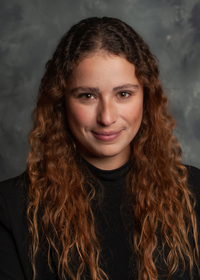Information Possibly Outdated
The information presented on this page was originally released on January 20, 2003. It may not be outdated, but please search our site for more current information. If you plan to quote or reference this information in a publication, please check with the Extension specialist or author before proceeding.
MSU faculty contribute to dairy encyclopedia
MISSISSIPPI STATE -- Got milk questions? International experts including several Mississippi State University faculty members provide answers about dairy science "from paddock to plate" in a newly released encyclopedia.
John Fuquay, dairy science professor emeritis at MSU, is one of three editors for "The Encyclopedia of Dairy Sciences," an extensive and authoritative source of information on the subject. The Major Reference Works Division of Academic Press is publishing this first-of-its kind, four-volume collection of 427 articles. The dairy science encyclopedia is part of a series of encyclopedias, others of which focus on food science, microbiology, meat animal science, reproduction and other topics.
Fuquay found authors for the dairy production portion of the encyclopedia and edited their work included in the volumes. He also wrote a chapter on the effects of heat and stress on reproduction. Other contributions from MSU's Animal and Dairy Science Department include Peter Ryan's article on labor and delivery in dairy cattle, Terry Smith's article on feeding dry and newly lactating cattle and Scott Willard's article on reproductive cycles in seasonal breeders. Retired MSU professor Joe Bearden contributed an article on leptospirosis.
Additional MSU faculty contributing to the book include Dr. Richard Hopper of the College of Veterinary Medicine, who submitted an article on external parasites related to mange, dermatitis and dermatosis on dairy cattle. Charles White, professor of food science and technology, wrote an article on the handling, storage and transportation of raw milk.
The primary audiences for the encyclopedia are researchers, educators, dairy company managers, dairy Extension personnel, dairy consultants, undergraduate and graduate students, people involved in economic and nutritional policymaking, and the media.
Contact: Dr. John Fuquay, (662) 325-2802


